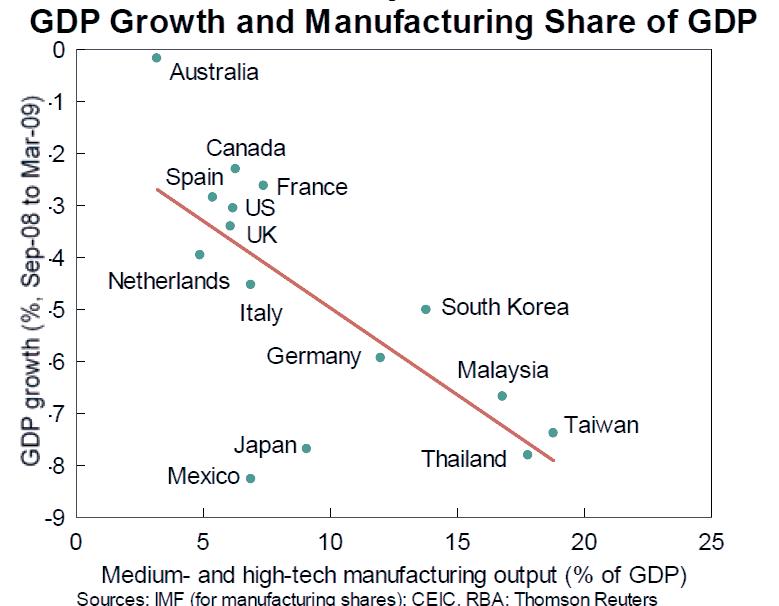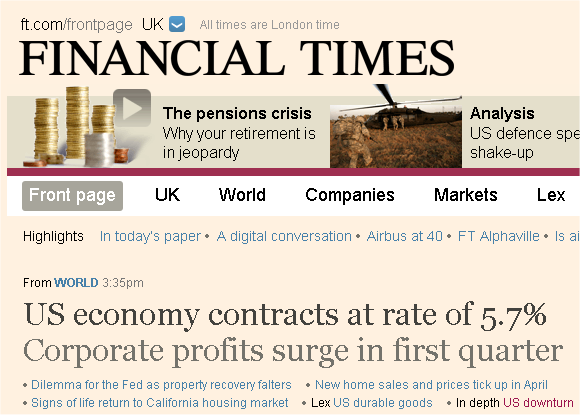This is not a post about how Chrysler might work going forward, nor a post about how dastardly the hold-outs are. This is a post about the distribution of haircuts and the move from White House-led negotiation to bankruptcy court.
There are broadly four groups of creditors: The (sole remaining) shareholder, the union/pension-fund, the bond holders and the US government.
Clearly the shareholder should be wiped out. The question is how much of a haircut everybody else should take.
I believe that by law, the US government would take the smallest haircut (get the largest fraction of their money back) as they’re super-senior, then the bond holders in decreasing order of seniority and the union/pension fund should get the biggest kick in the teeth. The hold-outs were secured creditors, which means that if the company is liquidated they get a pretty senior claim on the proceeds.
[Update: Duh. The government isn’t a super-senior bond holder, it’s a preferred share holder, which means that it’s claims, in principle, ought to be subordinate to the bond holders]
As I understand it, the deal on the table had the order differently. The unions were getting back something like 60c on the dollar, the government 45c on the dollar and the bondholders 25c on the dollar (those numbers are made-up, but indicative).
That conflict between what would normally happen and the deal on offer was what gave rise to this sort of comment from Greg Mankiw:
Via the WSJ, here is the view from a “secured (sic) creditor” of Chrysler:
“Like many others I made the mistake of buying what I believed was ‘value,'” Mr. Gwin says, adding that investors who bought at the time believed the loans were worth more than their market price. “We did not contemplate having our first liens invalidated by a sitting president,” he adds.
As the President intervenes in more and more industries, a key question is how he does it and what he is trying to achieve. Is he trying to reorganize insolvent firms while, as much as possible, preserving the rights of stakeholders as established under existing contracts? Or is he trying to achieve a “fair” outcome as he judges it, regardless of preexisting rules and agreements? I fear it may be the latter, in which case politics may start to trump the rule of law.
Mankiw has an uncanny ability to irritate me at times and although he has a bloody good point, even a vitally important point, this post did irritate me because I suspect that most bankruptcy arrangements aren’t fair, for a few reasons:
First, bond-holders, like equity holders, are ultimately speculators. We differentiate the seniority of their claims legally, but the fact is that a guy holding a Chrysler bond is just as much of a punter as the dude holding one of the shares. They (presumably) had the same access to information about Chrysler’s future and they (hopefully) both knew that their investment came with risk. The idea of one subset of one factor of production being largely protected from the risk of the company’s failure is silly.
Second, employees are not speculators in the same way that the providers of capital are. The cost of taking your money out of a company’s bonds or shares and moving it to another company is negligible. The cost of taking your labour out and moving it to another company is significant. At the very least, you are often geographically tied down while your money is not. Therefore the socially optimal decision would help insure the employees against the risk of the company failing but leave the capital to insure itself. Since US unemployment benefits (the public insurance framework) is so measly, it seems reasonable to grant employees partial access to the assets of the company.
Third, in every company to some extent (although varying depending on the industry), the employees are the company. At an extreme, ask what a law firm would be worth if you fired all the lawyers. Therefore, even if labour were perfectly mobile, there is a game-theoretic basis for giving the employees a stake in the game: Principal-Agent problems exist all the way down to the floor sweepers. This is an argument for German-style capitalism where the workers are also minority shareholders. You might argue against workers’ representatives on the board of directors, but I do think they ought to have a share holding.
Fourth, even if all of the above balanced out to zero, there might (might!) be be beneficial social welfare to ensuring that the company is an ongoing concern rather than liquidated. When they pushed Chrysler into bankruptcy, the hold-outs were doing so because they would get more money under liquidation than the deal on the table. If there is a benefit to social welfare in keeping the company open, there ought to be a way to force the bond-holders to take a hefty haircut rather than liquidating the assets, even – and this is where Professor Mankiw might really get upset – if it wasn’t Pareto improving (the needs of the many …).
Nevertheless – and this is why Mankiw managed to get under my skin on this occassion – I am glad that Chrysler has gone into bankruptcy.
I am glad because even though I largely agree with the White House’s proposal, and even if my four points are all true, it is not the job of the executive to be making these decisions. There are entire institutions set up for it. The bankruptcy courts and the judges who preside over them specialise in this stuff. By all means the White House might make a submission for consideration (as the executive of the country, not just as a stakeholder), but it should be up to the judge to decide.
I suspect, or at least like to imagine, that Barack Obama knows all this already (he is a constitutional lawyer, after all) and that he pushed the negotiation down the path it has taken because politically he needed to be seen to be trying to “save” Chrysler from bankruptcy and economically ne needed to avoid the market turmoil that would have ensued from a sudden move to bankruptcy rather than the tortuously gradual one we have seen.

